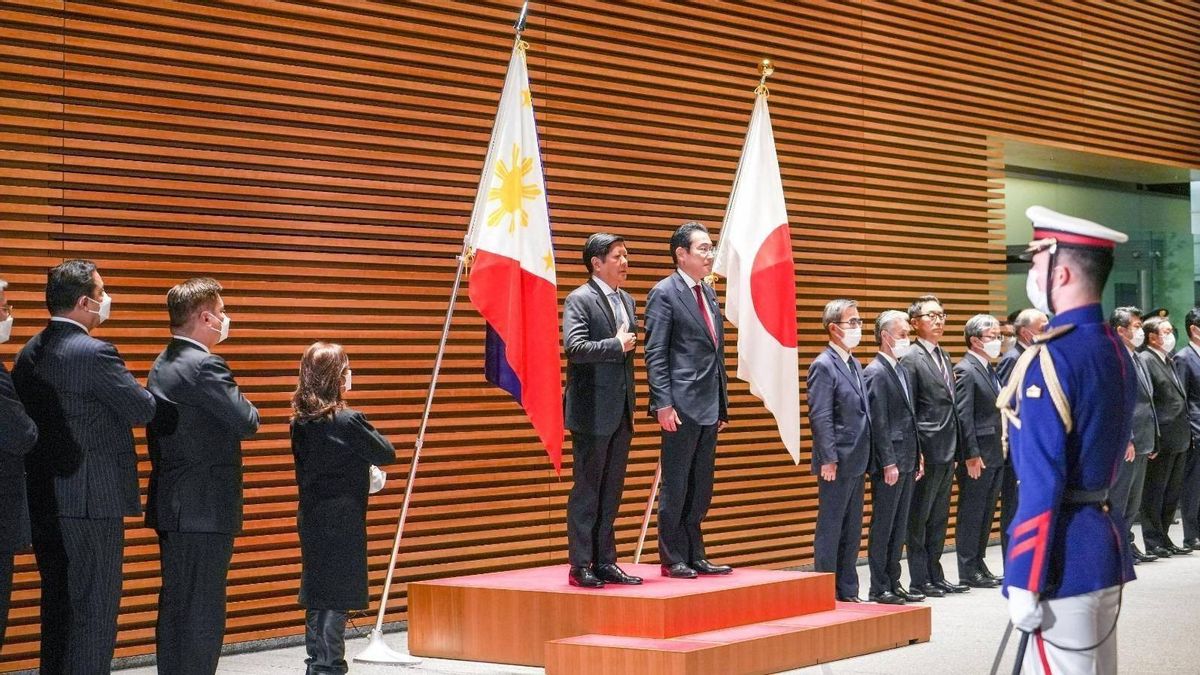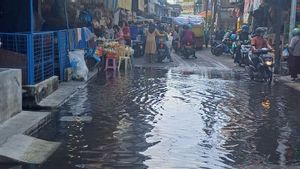JAKARTA - President Ferdinand Marcos Jr. said he saw no reason why the Philippines did not have a Forces Visit Agreement (VFA) with Japan, if it would improve maritime security and ensure greater protection for Filipino fishermen.
President Marcos Jr. told reporters he would be careful in pursuing a potential deal with Tokyo, "because we don't want to look provocative."
Marcos' first visit to Japan since taking office came after he recently gave the United States access to additional military bases in the Philippines under VFA, a move China says undermines regional stability and increases tensions.
It is known, VFA provides rules for the rotation of thousands of US troops in and out of the Philippines to hold exercises.
"If it will help the Philippines in protecting, for example, our fishermen, protecting our maritime territory... I don't understand why we didn't adopt it (VFA)," President Marcos Jr. told reporters before returning home on Sunday, according to an official transcript.
President Marcos Jr. is in Japan for a five-day visit since Wednesday last week, to establish closer security ties with Tokyo, which in December announced its biggest military build-up since the Second World War, fueled by concerns about China's aggressive actions in the region.
PM Kishida: I had an in-depth summit meeting with Philippine President Marcos @bongbongmarcos , who is on an official visit to #Japan. We released a joint statement and also exchanged seven economy- and security-related outcome documents. (1/2) pic.twitter.com/8vibSuYboy
— PM's Office of Japan (@JPN_PMO) February 9, 2023
President Marcos Jr. and Prime Minister Fumio Kishida struck a deal to allow their armed forces to work together during disaster management, a deal seen as a move towards a broader pact, allowing the two countries to deploy troops in each other's territory.
"I always think about the need to protect our fishermen. We need to clearly show that we are patrolling our waters and ensure that our marine areas are clearly recognized," said President Marcos Jr.
It is known, the Philippines has VFA with the United States. Meanwhile, Tokyo has VFA with Australia and the UK, and also accommodates the largest concentration of US troops abroad.
Japan held military exercises with the United States and the Philippines recently in October. Its military presence in the Philippines could help counter China's influence in the South China Sea, most of which Beijing claims, including the region Manila considers hers.
PM Kishida said the Philippines and Japan had agreed to try and establish a framework that would "strengthen and smooth the process of holding joint exercises".
In an interview with Nikkei on Sunday, President Marcos Jr. said his country could be dragged into a possible conflict in the Taiwan Strait, due to its proximity to a self-governing island that China considers a breakaway province.
"When we look at the situation in the region, especially the tensions in the Taiwan Strait, we can see that only with our geographic location, if there is indeed a conflict in the region... it is very difficult to imagine a scenario where the Philippines will somehow not engage," said President Marcos Jr.
The English, Chinese, Japanese, Arabic, and French versions are automatically generated by the AI. So there may still be inaccuracies in translating, please always see Indonesian as our main language. (system supported by DigitalSiber.id)













